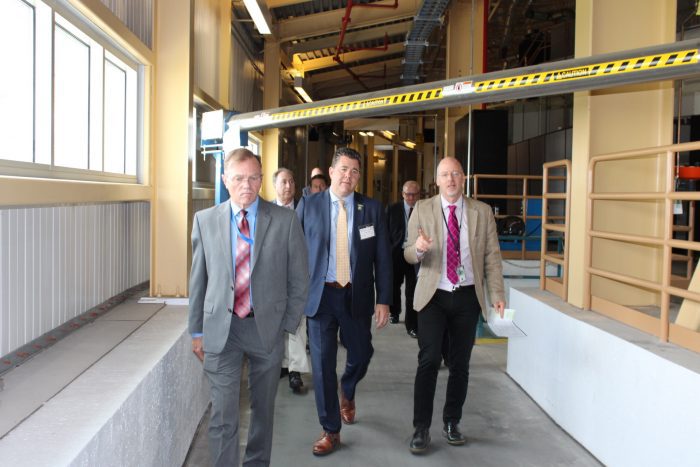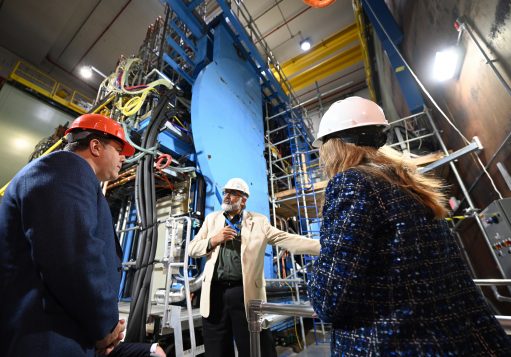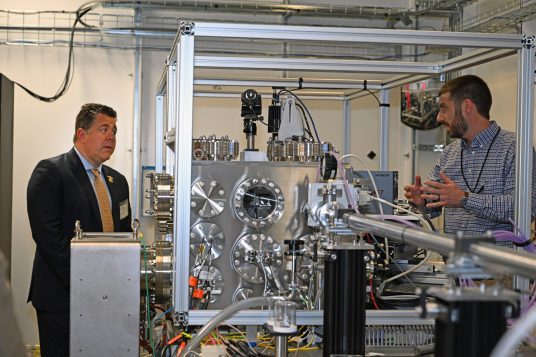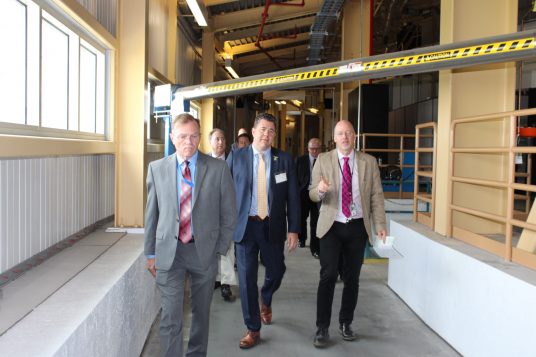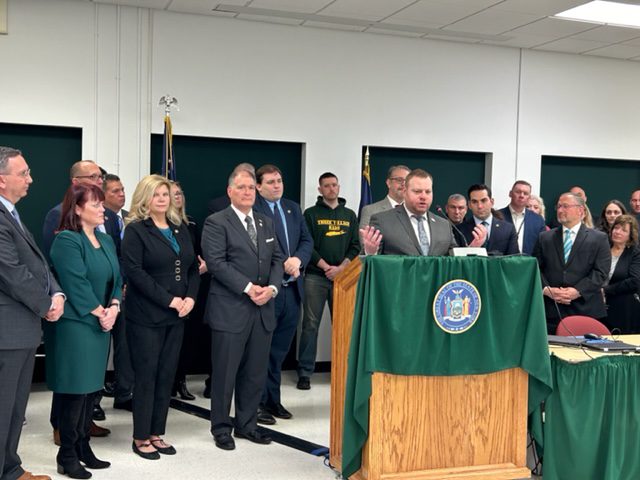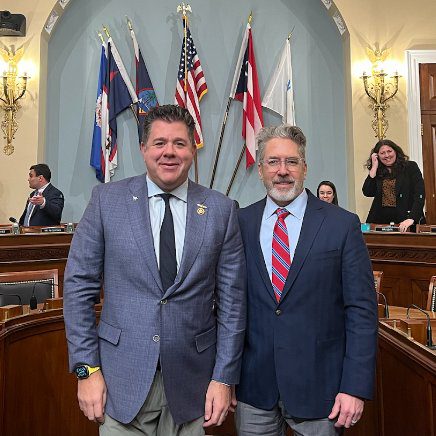By Aidan Johnson
The Democratic congressional candidates for District 1 — Nancy Goroff and John Avlon — attended a meet the candidates night at C.P. La Manno’s restaurant in Miller Place April 30. During the debate, Goroff and Avlon discussed issues such as foreign aid, social media, Social Security and more. The congressional seat is currently held by Nick LaLota (R-NY1).
Introductions
Avlon, who served as an anchor on CNN before deciding to run for Congress, said that he joined the race because he “didn’t feel like this was a time for talking, I think this is a time for doing.” He also described being frustrated that the district was being seen as a battleground swing district, and that it was important to win both Democrats and Independents “to build the broadest possible coalition to defend our democracy, defeat Donald Trump [R] and win back the House.”
Goroff, who has formerly served as chair of the Department of Chemistry at Stony Brook University and previously ran for the congressional seat in 2020 against former Congressman Lee Zeldin (R-NY1), described how she co-founded a nonprofit called the Long Island Strong Schools Alliance, along with a nonpartisan political action committee to get “good people elected to the school board.” According to LISSA’s website, its mission is “to support policies that strengthen education in our public schools, with a focus on critical thinking skills, civic engagement, diversity, equity and inclusion.” Goroff said that LaLota has “not been there for the people of this district.”
Social Security and Medicare
Goroff described Social Security and Medicare as being “two of the most successful programs this country has ever had.” She said that Medicare’s age should be lowered from 65, and that the income level tax cap for Social Security, which currently stands at $168,600, should be increased.
Avlon also supported raising the income tax cap for Social Security. “The one thing we got to do is make sure we’re rebuilding and strengthening the middle class, and making sure that people have a path from the working class to the middle class, and making sure that we’re keeping our promise on a federal level with Social Security and Medicare,” he said.
Social media
Avlon supports the law that will force ByteDance, a Chinese technology company, to divest itself of TikTok or have it banned in the United States, saying, “If you’re owning a major media platform or company, it’s reasonable that you’re not being owned by a hostile foreign power that’s trying to propagate its own disinformation.”
Goroff pointed out the distinction between “keeping platforms free and open for fair information and banning people on those platforms,” stating that having TikTok either banned or sold is about not subjecting people to disinformation, with this issue also extending to making sure that other platforms, such as Facebook and X, formerly Twitter, are “fair and open platforms.”
Ukraine and Israel
Avlon said that he would “absolutely” support funding for Ukraine. For Israel, he said that when seeing “a vicious act of terrorism like October 7, I believe instinctively and deeply that we need to stand with the victims of terrorism and not blame the victims of terrorism.” He also stated that Israeli Prime Minister Benjamin Netanyahu has made it difficult to have more broad and bipartisan support for Israel, due to his policies and the level of civilian casualties, along with “the hamstringing of humanitarian aid.” Avlon called for a two-state solution with a demilitarized Palestinian state.
Goroff also supported aid for Ukraine. For Israel, she stressed that the conflict is very complicated, with its history extending far past the current conflict. She explained that Hamas is a terrorist organization that is “absolutely not helping the people of the Palestinian communities.” However, she said that the Palestinian National Authority is not helping either, due to extensive corruption that provides no alternative to Hamas. Additionally, she said that Netanyahu has “done everything he can” to strengthen Hamas against the Palestinian National Authority. Overall, Goroff called for a regime change in Israel, and a legitimate government in the West Bank, along with Israel increasing trade with its bordering countries, and for these countries to increase trade and stop worrying about uprisings within their populations.
Water quality, septic systems and sewers
Avlon called cesspools and septic systems a “fundamental issue of infrastructure and investment that needs federal dollars.” He said that it is necessary to protect the Long Island aquifers, which will require federal investment, some of which “has already been allocated to expand our sewer system and get us off septic.” If elected to Congress, Avlon would want to serve on the Subcommittee on Water Resources and Environment, in order to help bring solutions to these issues.
Goroff said that water quality was an extremely important topic: “Voters across the political spectrum care about what our coastline looks like and what the water that comes out of our tap looks like.” She noted that there are places on Long Island that need sewers, which could bring opportunities for businesses, but there are also some places where sewers would not make financial sense.
The Democratic primary is on Tuesday, June 25.



